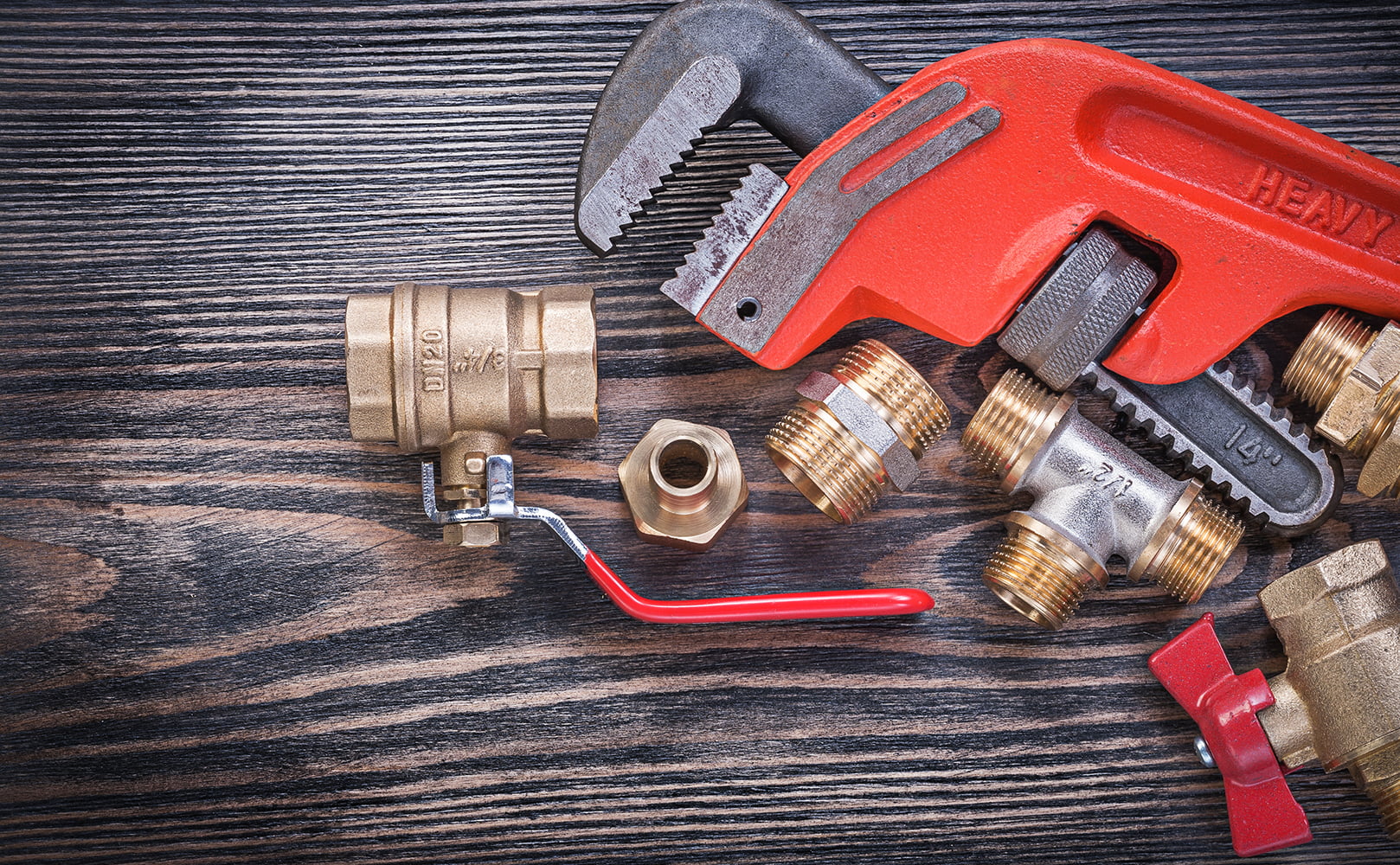Does a UV Water Filter Remove Chlorine?
Written by: Gene Fitzgerald // Last Updated: Sep 13, 2022
This page may contain affiliate links. If you buy a product or service through such a link we earn a commission at no extra cost to you. Learn more.
UV water purifiers are famous for killing waterborne pathogens.
But does a UV water filter remove chlorine as well?
Let’s find out!
Key Takeaways
- A UV water filter does remove chlorine.
- However, it must use a medium-pressure UV light in order to successfully dechlorinate water, transforming chlorine into chloride.
What Is UV Water Filtration and How Does It Work?
A UV water filtration system utilizes ultraviolet (UV) light to kill microorganisms like bacteria in a water supply. Exposing bacteria to UV light scrambles their DNA and prevents them from reproducing.
A good UV filtration system can easily remove 99.9% of microbes in your water supply. Combined with proper pre-filtration that removes floating particles, you can get your drinking water to a very safe level compared to other methods.
UV water filtration systems are typically attached to the home’s plumbing, filtering all water that passes through the house. There are also standalone models available, and even portable filters (in the form of bottles with an integrated UV light).
System Parts
UV water purifiers feature several components. A UV light bulb sits in the middle of the machine, emitting light in all directions. Encasing that bulb is a quartz sleeve which protects it from coming in contact with water. The sleeve is specifically made of quartz to maximize its ability to transmit UV light.
The quartz sleeve is surrounded by empty space through which water flows. All of this is encased in an outer chamber usually made of stainless steel. The chamber has an input and output outlet that allow connecting it to the plumbing of your home.
Does a UV Water Filter Remove Chlorine?
UV filtration is one of the methods that can be used to remove free chlorine from water. Many users wrongly associate UV filtration exclusively with killing bacteria, viruses, and cysts, but it can do more than that. However, you need to have a suitable purification system in order to accomplish that.
Specifically, you need at least a medium-pressure UV light to be able to successfully dechlorinate water. If your system fits the bill, this can be one of the best ways to remove free chlorine from water. However, you need to explicitly verify that your UV water purifier is using a medium-pressure bulb. Otherwise, dechlorination will be significantly less effective or might not be possible at all.
What Else Do UV Water Purifiers Remove?
UV water purifiers destroy 99.9% of microorganisms commonly found in water supplies. This includes everything from viruses to fungi. In fact, some viruses which are resistant to other filtration methods can be removed very easily with the help of a UV water filter.
However, it’s important to understand that UV water purifiers don’t physically remove anything from the water supply. UV light only destroys the DNA of microorganisms, but doesn’t physically remove them.
Also, many UV purification systems feature a pre-filtration step that removes various particles from the water. This is important for ensuring the optimal performance of the purifier.
Dechlorination Using UV vs. Activated Carbon vs. Sodium Metabisulfite vs. Boiling
UV light, activated carbon, and sodium metabisulfite are three commonly used methods to remove chlorine from water. Boiling is also an option when nothing else is available, but it’s not as convenient as using a dedicated filtration system. You have to manually switch out the water between boiling sessions and observe various precautions to avoid causing an accident.
All three methods have their advantages and disadvantages. But all things considered, UV light is quite convenient and effective for dechlorination. It works fast and is very consistent and reliable. It also doesn’t waste any water.
One benefit of UV water treatment compared to activated carbon and sodium metabisulfite filtration is that it requires far less maintenance on a regular basis. You just need to replace the lamp every year and the quartz sleeve every two years (roughly), and that’s pretty much it. The other two methods require more frequent part replacements and other forms of maintenance, and generally require you to pay more regular attention to them.
In terms of general effectiveness, all three methods are pretty reliable and can get the job done as long as the corresponding systems are kept in order.
Applications of UV Water Purification
As mentioned before, UV water purification is commonly used to sterilize household water and make it safer to drink. It also has other applications though, including industrial ones. Industrial-grade systems are much more complex and feature advanced components that are typically not found in domestic setups.
If you have an aquarium, you may have already seen a UV water purifier in action. UV purification is commonly used in domestic aquarium systems to improve the water’s purity and make it more suitable for certain species of fish. It also helps reduce maintenance of the aquarium, especially when combined with other filtration systems. It doesn’t completely eliminate the need for maintenance, however, so don’t assume that you’ll be able to leave your fish completely unsupervised.
Advantages of UV Light Water Filtration
Reliable and Effective
A UV water purifier always works as expected. As long as the unit has been properly maintained, there will be no variance in its performance. The effectiveness of some other filtration methods may fluctuate over time, depending on factors like the distribution of chemicals through the water.
No Chemicals
Speaking of chemicals, UV water filtration doesn’t use any to accomplish its goal. It only uses UV light, meaning that your water never comes in physical contact with any disinfecting agents. This results in no alteration to the taste or smell of your water.
Relatively Cheap
Purchasing and installing a UV water purification system can be cheaper than many other types of water filtration. These systems are also widely available, with plenty of companies on the market offering them in different configurations. You can use professional services for the installation if you don’t feel confident about your own skills.
No Harmful Waste
Nothing gets deposited in the water after it’s passed through a UV filter. In fact, if you’re concerned about free chlorine, a UV water purifier might actually prove effective at getting rid of them as well.
Fits Most Plumbing Systems Easily
There’s no need to make any special adjustments to your home’s water supply in order to install and use a UV purification system. You can fit one very easily as long as you have full access to all parts of your plumbing, and accessing it for maintenance afterwards is very straightforward as well.
Disadvantages
Doesn’t Fully Decontaminate Water
UV water filtration works great for disinfecting water, but it doesn’t actually remove anything from it – even free chlorine isn’t removed but transformed into chloride.
That said, a pre-filtration step might get rid of most other contaminants. If you want to fully decontaminate your water supply, however, you’ll probably need to invest in additional systems.
Requires Pre-filtration
That brings us to another downside: In many cases UV water purification requires pre-filtration in order to work properly. If your water isn’t filtered before it enters the purifier, it may contain various particles which end up blocking UV rays and preventing the UV purifier from working as efficiently as it should.
Pre-filtration is either done by the UV water purification unit itself or implemented as a completely separate device that attaches to your plumbing before the UV purifier.
Requires Electricity
UV water purifiers require power to operate. If you end up without electricity in your home for whatever reason, you will also not be able to get your water disinfected. Depending on how the electrical installation of your home is set up, you may not even notice that anything is wrong if your power goes out only partially and disables the UV purification unit but nothing else.
Are UV Water Purifiers Safe?
UV water purification is one of the safest approaches to water disinfection available on the market today. All things considered, this is a reliable and effective method for improving the purity of your water and making it safer to drink.
There are very few downsides to using a UV purifier compared to other available methods, and purchasing one can easily be a viable long-term investment that will last for many years with minimal maintenance.
You just need to be prepared to spend some money on replacement UV bulbs and quartz sleeves.
If you have any thoughts about the question, does a UV water filter remove chlorine, please don’t hesitate to leave a comment below!
Information provided on BOS is for educational purposes only. The products and services we review may not be right for your individual circumstances.
We adhere to strict editorial guidelines. Rest assured, the opinions expressed have not been provided, reviewed, or otherwise endorsed by our partners – they are unbiased, independent, and the author’s alone. We fact-check all content for accuracy. It is accurate as of the date posted and to the best of our knowledge.



